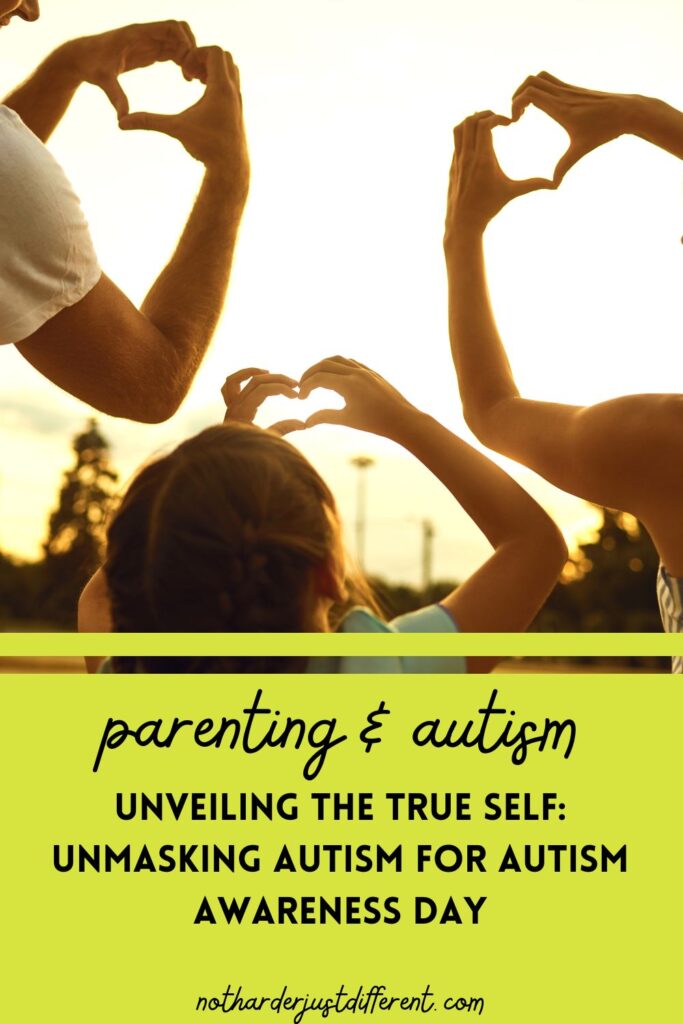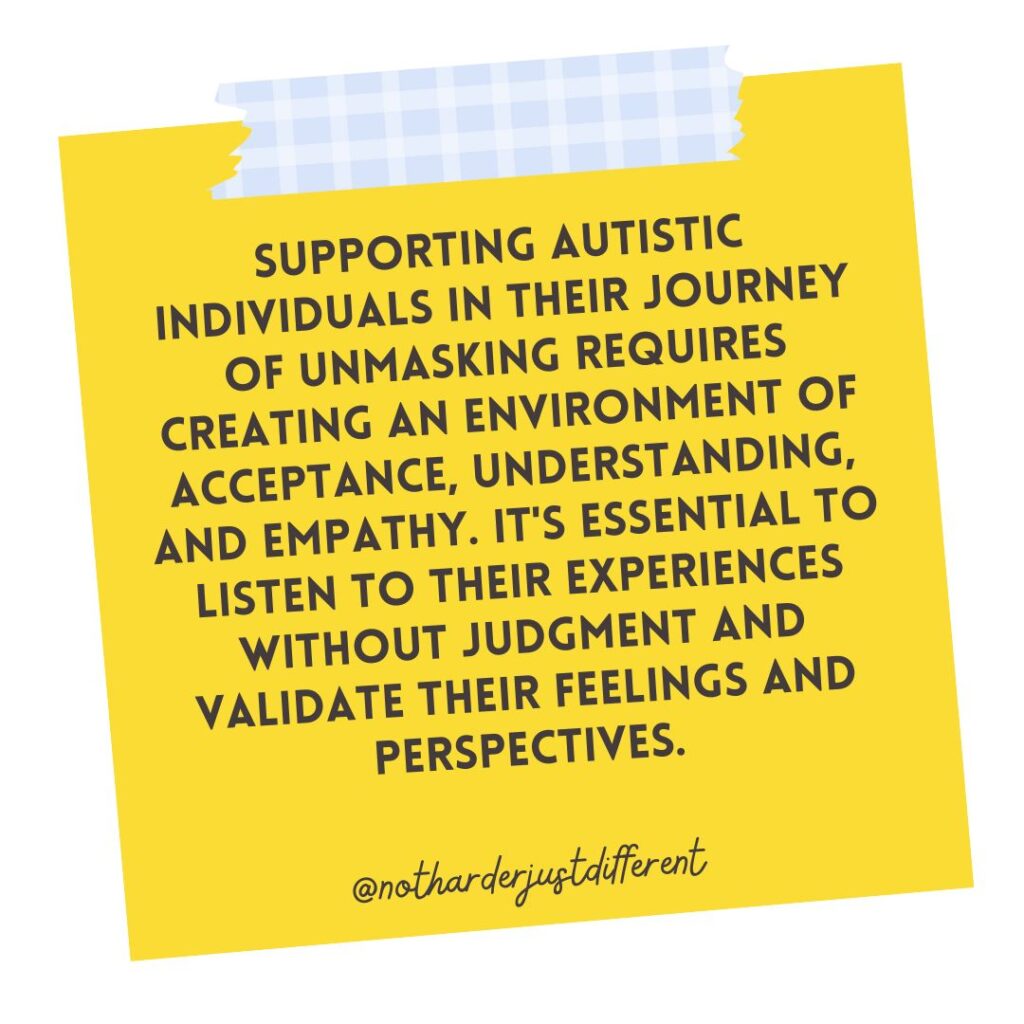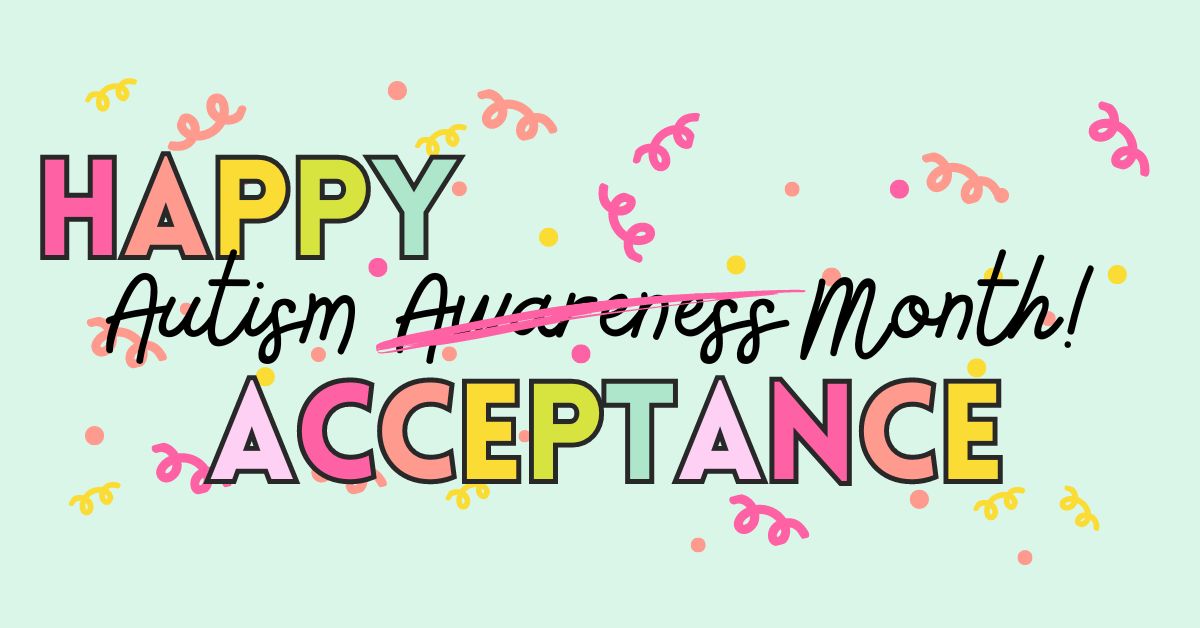Disclaimer: As a future Licensed Clinical Social Worker (LCSW) currently pursuing my master’s degree, I am passionate about sharing insights and information related to parenting, autism and homeschooling based on my personal experiences and research. However, the content shared on this blog is not intended to substitute professional advice, diagnosis, or treatment. Parenting is a deeply personal journey, and while I strive to provide valuable insights, every family and situation is unique. Readers are encouraged to consult with qualified professionals for personalized guidance tailored to their specific needs and circumstances.
As we approach Autism Awareness Day, it’s essential to shine a light on the concept of unmasking autism. What exactly does unmasking mean? Well, for many autistic individuals, unmasking is the process of revealing their true selves—their authentic thoughts, feelings, and identities—without feeling the need to camouflage or hide their neurodiversity. It’s about breaking free from societal expectations, embracing neurodiversity, and celebrating the uniqueness of each individual.
Table of Contents
Unmasking autism is crucial for autistic individuals because it allows them to embrace their authentic selves and live more fulfilling and authentic lives. For far too long, many autistic individuals have felt pressured to conform to societal norms and mask their true identities to fit in. This constant masking can be exhausting and detrimental to their mental health and well-being. By unmasking, autistic individuals can finally let go of the facade and embrace their strengths, interests, and quirks proudly.

Why Unmasking Autism Matters
Unmasking autism is more than just a concept—it’s a fundamental aspect of promoting authenticity and well-being within the autism community. Masking, or camouflaging, involves suppressing autistic traits and behaviors to conform to societal expectations of “normal” behavior. While masking can help autistic individuals navigate social situations and avoid discrimination, it often comes at a significant cost to their mental health and self-esteem. Constantly pretending to be someone they’re not can lead to exhaustion, burnout, and feelings of disconnection from their true selves.
Moreover, masking can create a barrier to understanding and acceptance from others. When autistic individuals feel pressured to hide their true identities, it can hinder authentic relationships and communication. Unmasking autism allows individuals to embrace their unique strengths, interests, and perspectives without fear of judgment or rejection. By fostering an environment where authenticity is valued and celebrated, we can create a more inclusive society where everyone feels accepted and understood for who they truly are.
Why Unmasking Matters:
- Promotes authenticity and self-acceptance.
- Reduces stress and improves mental well-being.
- Fosters genuine connections and understanding.

Supporting Autistic Individuals in Unmasking
Supporting autistic individuals in their journey of unmasking requires creating an environment of acceptance, understanding, and empathy. It’s essential to listen to their experiences without judgment and validate their feelings and perspectives. By demonstrating genuine acceptance and support, we can build trust and encourage autistic individuals to embrace their authentic selves. Additionally, advocating for neurodiversity acceptance and challenging stereotypes can help create a more inclusive society where everyone’s differences are celebrated and embraced.
One way to support unmasking is by providing opportunities for autistic individuals to express themselves freely without fear of judgment or discrimination. Creating safe spaces where they can share their thoughts, experiences, and interests openly can help foster a sense of belonging and acceptance. Moreover, it’s essential to educate others about the importance of neurodiversity acceptance and encourage them to challenge stereotypes and misconceptions about autism. By promoting understanding and empathy, we can create a more inclusive environment where autistic individuals feel valued and respected for who they are.
Furthermore, it’s crucial to advocate for systemic changes that prioritize the needs and rights of autistic individuals in various aspects of life, including education, employment, and healthcare. This may involve promoting policies and initiatives that promote inclusion, accessibility, and accommodation for individuals on the autism spectrum. By advocating for systemic changes, we can create a society that values and celebrates neurodiversity, ensuring that autistic individuals have equal opportunities to thrive and succeed.
How to Support Unmasking:
- Listen to their experiences without judgment.
- Validate their feelings and perspectives.
- Advocate for neurodiversity acceptance and inclusion.
Practicing Unmasking: Tips for Autistic Individuals
For autistic individuals looking to practice unmasking in their daily lives, there are several practical strategies they can adopt to embrace their authentic selves more confidently. First and foremost, it’s crucial to reflect on situations where masking occurs and assess how it impacts their mental health and well-being. By recognizing the negative effects of masking, such as increased stress or feelings of disconnection, individuals can begin to prioritize self-care and set boundaries to protect their authenticity. This may involve taking breaks when feeling overwhelmed, seeking support from trusted friends or professionals, and engaging in activities that promote relaxation and self-expression.
Additionally, autistic individuals can explore their interests, passions, and strengths and find ways to incorporate them into their daily routines and interactions. Embracing their unique talents and enthusiasms not only enhances their sense of identity and purpose but also allows them to connect more authentically with others who share similar interests. Whether it’s immersing themselves in a favorite hobby, pursuing a creative outlet, or delving into a specialized area of study, engaging in activities that bring joy and fulfillment can empower individuals to express themselves more confidently and authentically.
Moreover, surrounding themselves with supportive and understanding people who accept them for who they are can play a significant role in practicing unmasking. Building a network of friends, family members, or colleagues who appreciate their strengths and celebrate their differences creates a safe space where individuals can be themselves without fear of judgment or rejection. Seeking out social groups, online communities, or support networks specifically tailored to autistic individuals can provide valuable opportunities for connection, understanding, and validation, fostering a sense of belonging and acceptance. By practicing self-compassion, setting realistic expectations, and embracing their authentic selves, autistic individuals can navigate the journey of unmasking with confidence and resilience.
Tips for Practicing Unmasking:
- Reflect on situations where masking occurs.
- Prioritize self-care and set boundaries.
- Embrace interests and strengths in daily life.
In conclusion, unmasking autism is essential for promoting authenticity, acceptance, and well-being within the autism community. By embracing their true selves and challenging societal expectations of “normal” behavior, autistic individuals can live more fulfilling and authentic lives. It’s crucial for all of us to support and uplift autistic individuals in their journey of unmasking, creating a more inclusive and understanding society where everyone’s differences are celebrated and embraced. Together, let’s continue to advocate for neurodiversity acceptance and create a world where everyone feels valued, accepted, and supported for who they are.

